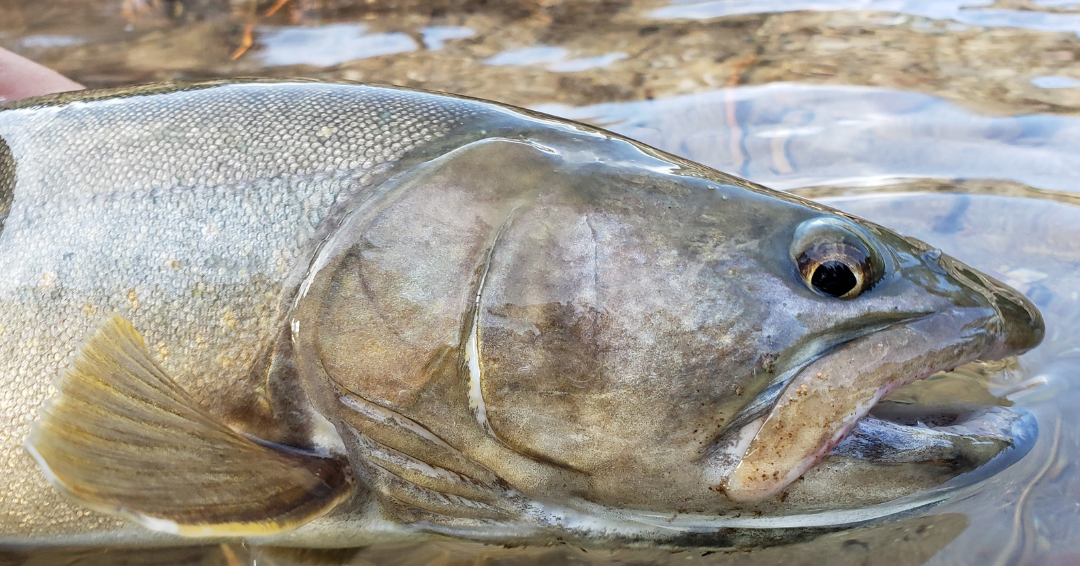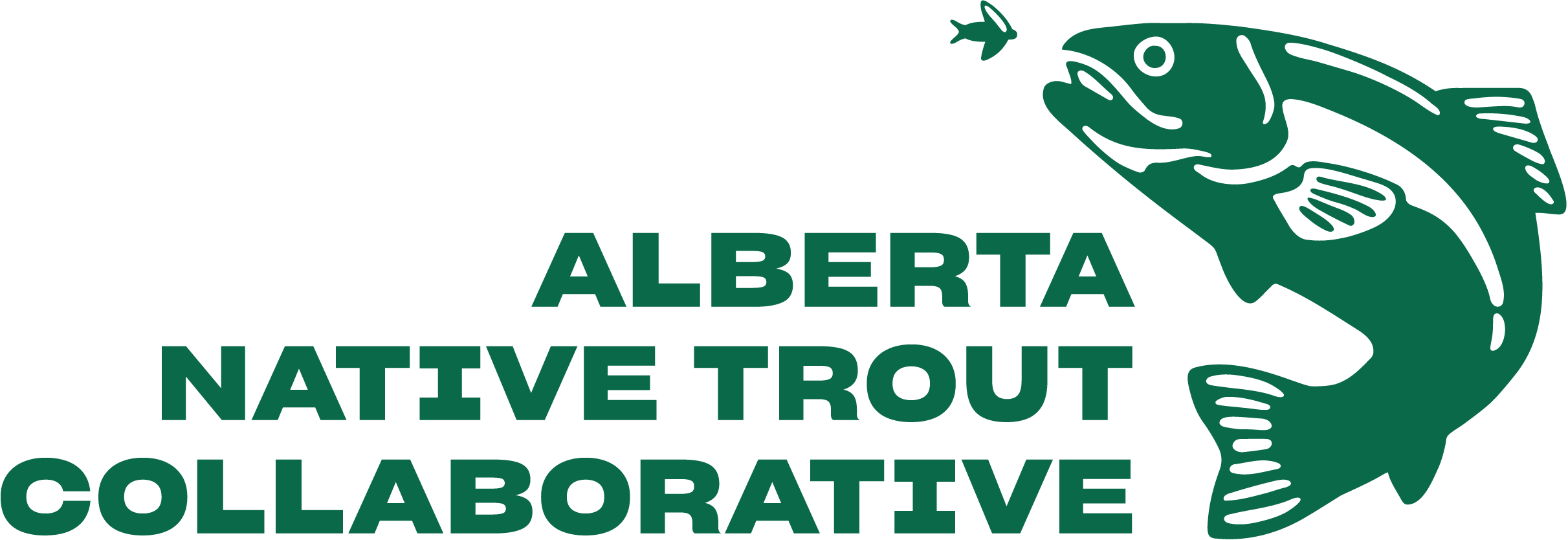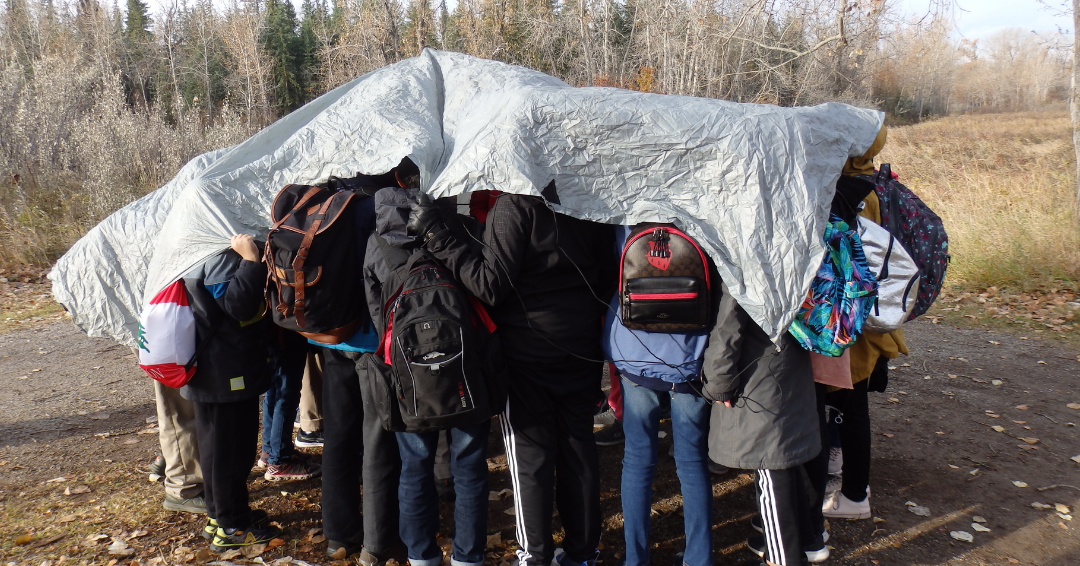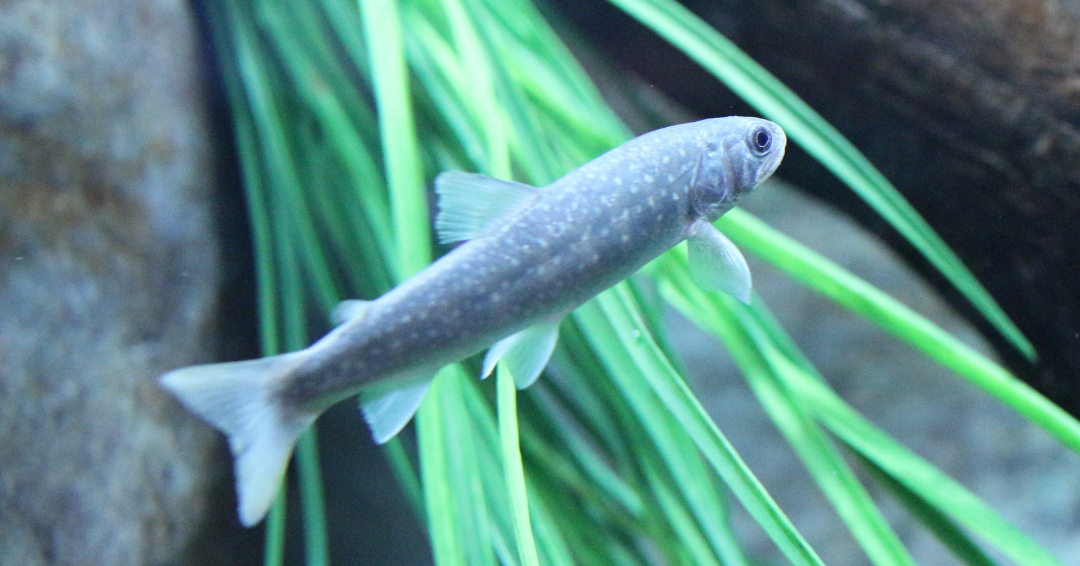Using your keen observation skills, uncover an Alberta apex predator – the bull trout!
PURPOSE
Using this calming, movement-based game, participants will test their observational skills while learning about our provincial fish – the bull trout.
RECOMMENDED GRADES
Grades K-4, 7-9
TIME NEEDED
15 minutes

Curriculum CONNECTIONS
Matter & Energy (K)
Energy (Grade 1-2)
Energy (Grade 1-2)
Earth Systems (K, Grade 2 & 4)
Living Systems (Grade 1 & 3)
Interactions & Ecosystems (Grade 7)
Unit E: Fresh Water and Salt Water Ecosystems (Grade 8)
Biological Diversity (Grade 9)
MATERIALS NEEDED
None!
Instructions
- An apex predator is at the top of a food chain, with few natural predators. In controlling species’ population density and restricting smaller predators, they are central to the functioning of ecosystems - regulating disease and maintenance of biodiversity. Such wide-ranging effects on lower levels of an ecosystem are termed trophic cascades.
- Bull trout are an apex predator of their habitat. As a carnivore/consumer they prey on other fishes, including mountain whitefish. Their diet also includes aquatic invertebrates, crustaceans, molluscs, and insects floating on the water's surface.
- In this game, each participant will be challenged to use their observation, sharp wit, and awareness to deduce or disguise the identity of the apex bull trout that impacts all.
- Have everyone either sit cross-legged with knees just about touching or stand an arm’s length apart in a circle. Ask for a volunteer to be the Apex Seeker and have them turn away with their ears covered and select an Apex Predator. Once chosen, it will be the Apex’s job to begin and continue a follow-the-leader rhythm circle using dance moves or body claps, snaps and taps. All actions begin and end as the Apex Predator decides.
- Begin play by having the Apex Seeker stand in the middle of the circle. Their challenge will be to identify the Apex Predator using all their senses to figure out who is leading the actions of the circle. The Apex Predator should look to change the movement action or pattern every 20 seconds. Everyone else in the circle copies the actions of the Apex Predator, doing their best not to give them away by using their peripheral vision to detect action shifts over directly staring at the Apex Predator. The Apex Seeker is given 3 guesses as to the identity of the Apex Predator. Ask the Seeker what informed their choices (correct or not).
Discussion:
- Chat about how the group feels after this game. This game fosters the practice of leadership and creates personal affirmation, while teaching about the widespread influence of apex predators.
- Use questioning to find out what the Apex Seeker was paying attention to—were they looking for movement…locating the first change in sound…reading facial expressions or body language…or using intuition? What kind of tactics was the Apex Predator using? You can use this time to talk about native trout survival methods and adaptations (e.g. camouflage).
- Why are bull trout an important apex predator in Alberta’s waterways? Bull trout help to maintain populations of mountain whitefish, aquatic invertebrates, and other aquatic species. This helps to regulate disease and maintain biodiversity.
- What might happen to the ecosystem if bull trout went extinct? Populations of their prey species could explode to unhealthy levels, diseases might increase, biodiversity might decrease, and we’d lose our provincial fish!
- How can we help protect bull trout? See some of the resources below for more ideas.
Extensions:
- Learn more about threats to native trout in this short video: Threats to Alberta's Native Trout - YouTube.
- Discover ways that anglers, ranchers, off road vehicle (OHV) users, hikers, and campers can support native trout recovery through our interactive tool Stand Up For Alberta's Native Trout.
- Learn about the Alberta Native Trout Collaborative's efforts to rehabilitate native trout habit with this StoryMap: Rehabilitating Native Trout Habitat in Alberta.
Detailed Curriculum Connection
This activity is courtesy of the
Alberta Native Trout Collaborative

Learn more at albernativetrout.com


